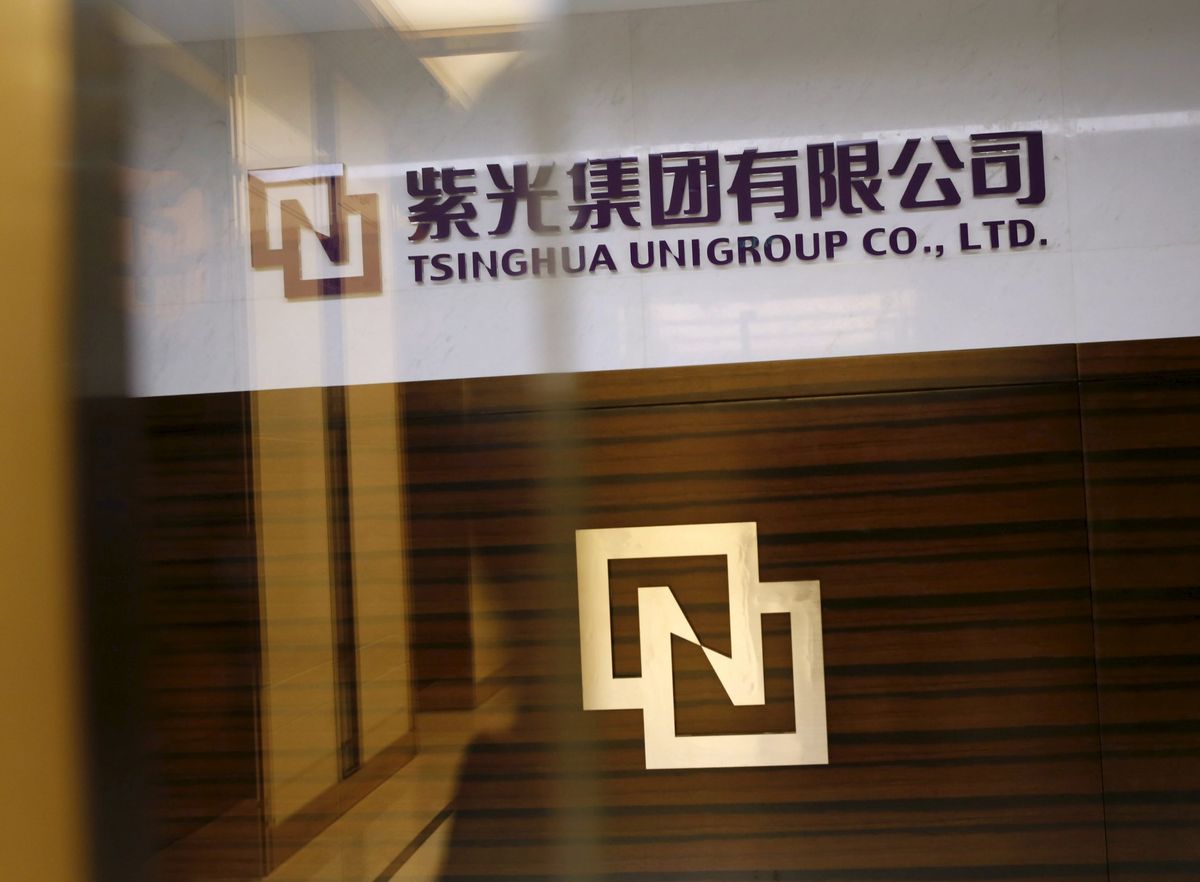Tsinghua Unigroup’s default illustrates the risks of China’s bond market

A few minutes every morning is all you need.
Stay up to date on the world's Headlines and Human Stories. It's fun, it's factual, it's fluff-free.
China’s government is increasingly willing to allow companies, even state-linked companies, to fail if they take on too much debt.
State-linked Chinese technology company Tsinghua Unigroup Co. Ltd. recently defaulted on an onshore US$198 million bond, triggering panic among investors and a significant downgrade in the company’s credit rating.
Tsinghua is one of China’s main drivers in the race to become self-sufficient in semiconductor technology, with the country having faced escalating sanctions on this technology from the United States.
The default illustrates an important development in China. China’s government is increasingly willing to allow companies, even state-linked companies, to fail if they take on too much debt.
For years, China’s state firms have faced rising defaults on bonds and credit, when such companies could previously rely upon state support in the event of any looming default.
That even state-backed companies can be allowed to fail in Xi’s China, even those providing crucial technology in the midst of a “tech war” with the US, illustrates a willingness among those in China’s government to cut down on the country’s ever-growing corporate debt.
China’s debt problem
China’s corporations have increasingly been laden with debt.
China is the world’s second-largest bond market – bonds being a type of loan made by an investor to a company. At present, the market for these bonds stands at a massive US$15 trillion.
Corporate debt in China has also surged, especially in the aftermath of the 2008 economic crisis. At the end of 2007, the amount of corporate debt to gross domestic product (GDP) stood at some 101%. By 2017, it stood at around 160%.
China’s total corporate, household and government debt also stood at a whopping 303% of GDP in the first quarter of 2019.
As more debt has been accrued in recent years, more and more companies have been unable to make repayments and have defaulted on this debt.
2019 witnessed onshore defaults in China of some 141.9 billion Chinese yuan, about US$21 billion. This was higher than 2018’s figure of 122 billion yuan, which itself was quadruple 2017’s default figures.
For 2020, corporate debt default figures are expected to exceed 100 billion yuan for the third consecutive year, largely as a result of policymakers cutting back on debt and credit after such measures were adopted to support the COVID-19 recovery process.
Most of these defaults hit China’s private sector, which typically faces more difficulties in securing loans than large, state-backed corporations.
For years, these state-backed corporations have been considered a safe investment as a result of close government banking making credit and capital flow easy, warding off fears of default.
Allowing a state-backed company to fail could also conceivably hurt national pride – something the Chinese government has long tried to avoid.
Tsinghua default
But as the case of Tsinghua Unigroup has shown, China’s government is increasingly willing to allow state-backed firms to fail if they are too burdened with debt.
In early November, the Beijing-based credit agency China Chengxin International Credit Rating raised the alarm on Tsinghua’s mounting debts and expressed its doubts about the company’s ability to finance planned investments while servicing its large debt.
The warning saw investor confidence slip, with prices of Tsinghua bonds tumbling dramatically, as the credit agency said Tsainghua was under watch for a possible downgrade from its AAA credit rating.
These warnings proved true, however, when Tsinghua then defaulted on repayments for a 2017 private debt issuance worth some 1.3 billion yuan, or US$198 million, the same month.
Tsinghua is a central player in China’s efforts to establish some self-reliance in semiconductor technology, as a result of US-led sanctions upon this technology. Tsinghua had drawn up plans to expand its capacity to produce hardware and its debt had largely been taken on to finance these efforts.
The default immediately triggered a downgrade in the company’s credit rating, which will likely weaken the company’s financial health over a longer period and make it harder to accrue more and more debt.
Yet, underscoring a shift in Beijing’s thinking, Tsinghua is not the only state-backed Chinese company to default this year.
Alongside Tsinghua, Yongcheng Coal & Electricity Holding Group Co. and automaker Huachen Automotive Group are two other state-backed firms that have failed to service their debts on time and have thus defaulted.
These developments illustrate that state-linked firms, previously insulated by defaults and debt worries as a result of state-backed easy access to credit, must now reconsider their position in China and work on cutting down their debt loads.
Some firms, such as property developer Evergrande Real Estate Group, have already begun to take on this arduous task.
Evergande holds the distinction of being the most indebted property developer in the world, but has undertaken numerous efforts to cut down its US$120 billion corporate debt.
These efforts have included a discounted sale of its properties nationwide and the securing of a US$4.6 billion lifeline from two state-linked companies to buy out existing investors in its subsidiary, Hengda Real Estate.
But the financial future of the likes of Tsinghua is looking less rosy. The company had 146.6 billion yuan in interest-bearing debt at the end of June 2020 according to Nikkei and the company has also suffered a 3.3 billion yuan net loss for the January-June period.
If current developments hold, China’s debt-laden state-backed firms may be allowed to go under more often, should they prove unable to service repayments.
With corporate debt defaults in China previously the domain of the private sector, the failure of large state-backed companies is pointing to an ever-growing concern among Chinese policymakers as to the country’s large corporate debt load and their willingness to cut it down.
Have a tip or story? Get in touch with our reporters at tips@themilsource.com




Comments ()